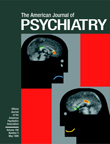Traumatic events are an all too common a part of everyday life. It has been estimated that 7% of the U.S. population is exposed to a traumatic event each year. From motor vehicle accidents to hurricanes, rape, war experiences, and community violence, exposure to traumatic events spans the life cycle and the geography of the nation and the world. Most people adjust satisfactorily following exposure to trauma. However, for some, psychiatric illness can be both an acute and a chronic outcome. Although posttraumatic stress disorder (PTSD) has now entered the common language of the community and the media, it is neither the whole story nor perhaps the most interesting story of trauma and mental health.
In Traumatic Events and Mental Health, Dr. O’Brien presents a thoughtful clinician’s review of the literature and the data on the relationship of trauma to mental health. As he says in chapter 6, “Not everyone who is exposed to trauma develops post-traumatic illness; not all post-traumatic illness is Post-Traumatic Stress Disorder.” In different chapters, the author introduces the diagnosis of trauma-related illness, describes the normal reaction to trauma, and summarizes the epidemiology of PTSD. In addition, he discusses the relationship of stressors and predisposing factors and, most important, posttraumatic illness other than PTSD. Chapters also address assessment, management and outcome, medicolegal aspects, and prevention of posttraumatic illness.
This book has the strength of having been written by a single author with a consistent voice throughout and a consistent perspective on trauma and subsequent psychiatric illness. The literature is presented in a descriptive rather than an integrated format and is enlivened with periodic comments from the author that clearly place him at the reader’s side, as if a colleague were talking to you about his clinical experience. For example, Dr. O’Brien writes, “The author’s favorite early case…” and, “Initially, it seemed to the author that Acute Stress Disorder was an artificial and unhelpful diagnostic category.” The author is inviting us to listen to his thoughts as he describes the literature and presents clinical problems and clinical solutions. Readers who hope to hear a skilled clinician walk them through the literature with a clinical perspective will find this volume to be both interesting and well grounded. Those looking for a cutting-edge review may be disappointed. As always, the single author perspective leaves holes in the literature review and an incomplete theoretical presentation. However, it provides a consistent guide on the often complex road from understanding to diagnosis and treatment of posttraumatic illness.
Dr. O’Brien is appropriately cautious on the contribution of debriefing to the prevention of posttraumatic illness; at the same time, he recognizes the potential both to make patients out of those who are not ill and to provide insufficient care to those who need it. My own group has begun to think of debriefing as fitting in the clinician’s armamentarium more like an analgesic medication than an antibiotic. If a patient has a broken arm, an analgesic can decrease pain and, by fostering early function, can limit the disability associated with contractures. Similarly, debriefing may be effective in relieving pain and suffering and restoring function by limiting withdrawal and isolation. However, as much of the present literature suggests, debriefing may not be effective in preventing PTSD. Although analgesic medication does not treat a broken arm, the physician would still think it important to prescribe. Better outcome studies measuring pain and disability are needed to assess the efficacy of debriefing more broadly.
Each chapter in this book ends with summary bullets, perhaps better called pearls of clinical practice, derived from Dr. O’Brien’s perspective on the literature and his own clinical experiences. These are well grounded and thoughtful, and they constitute an appropriate approach to patients and communities who have experienced trauma and disasters. I wish we could have more of Dr. O’Brien’s thoughts on eye movement desensitization and reprocessing therapy. This now very topical and controversial treatment lacks theoretical grounding. It appears to have the elements of exposure treatment and relaxation therapy, but the eye movement technique itself seems very unlikely to add to these therapeutic benefits. Dr. O’Brien’s thoughts on this treatment would be quite interesting.
Dr. O’Brien, who is associated with Aintree Hospitals of the National Health System in the United Kingdom, brings a world view to the issue of trauma and mental health. His down-to-earth clinical perspective can be received by many as a welcome catalogue of the literature by a clinician who provides guideposts for intervention without a soapbox presentation of the most popular recent perspective. Clinicians will find this book both helpful in their practice and a good resource for references on topics of interest in the area of traumatic events and mental health.

